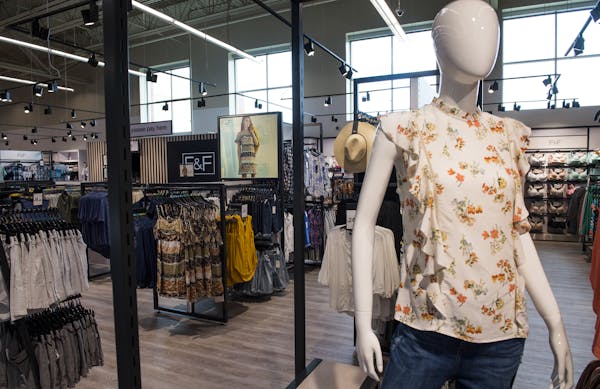Supervalu Inc.'s struggles to shore up its grocery operations, including Twin Cities market leader Cub Foods and its Save-A-Lot discount unit, are being hurt by competition and price deflation, executives said Thursday.
The Eden Prairie-based firm became the latest major grocery company to warn that its performance in the summer months would be below expectations. Executives cut their outlook for the rest of the company's financial year, which ends in April.
Supervalu shares fell 9.5 percent to the lowest level since the day in July when it reported results for its previous quarter.
Several larger grocery operations, including Wal-Mart Stores Inc., have also warned investors about pressure on profits. Abrupt, sometimes steep declines in food prices this year have hurt the notoriously thin margins in the grocery business. Egg prices since the spring have hovered at their lowest levels in a decade. Beef and pork prices are also sharply lower than a year ago.
But Supervalu also said its grocery unit "has been impacted to a greater than anticipated degree by competitive openings," though it wasn't specific and a company spokesman declined to elaborate.
Cub, the largest of the grocery chains that Supervalu operates, has come under pressure from Iowa-based Hy-Vee Food Stores, which has opened several locations in the metro area this year, some directly across the street from Cub. The Twin Cities has also seen new store openings from chains as varied as Fresh Thyme and Aldi.
In a discussion with investors at a Goldman Sachs-sponsored conference later Thursday, Supervalu CEO Mark Gross did not mention the competitiveness of the company's home market. But he said, "I would also admit in our conventional retail there are places where we need to just operate better."
Gross said firms like Wal-Mart and Aldi were also cutting prices more sharply, though he stopped short of saying they were engaging in a price war.
"I just say people are battling for what they perceive to be their fair share of the market and apparently peoples' belief of their fair share of the market is more than what they have today," Gross said.
Save-A-Lot and, to a lesser degree, grocers like Cub have also been hurt by lower levels of food stamp usage, he said. The government this year has changed the timing of food stamp distributions, reduced the number of beneficiaries and the size of benefits.
Supervalu executives said they expect the pressure on the retail and discount units to continue for the rest of the company's financial year. Supervalu is now in the final days of its second fiscal quarter.
To investors who monitor the growth of sales in comparable stores, Supervalu said it expects growth to be lower in the current quarter, which ends on Saturday, than it was in its fiscal first quarter, which ended June 18. In that period, the retail unit saw a same-store sales drop of 4.5 percent, while Save-A-Lot experienced a drop of 1 percent.
The retail and discount operations account for just over half of Supervalu's nearly $17 billion in annual revenue.
The other half, its wholesale business that distributes food to grocery retailers, is faring better.
Earlier this summer, the company announced several new customers for that business, its biggest by revenue. And executives said Thursday the wholesale unit in recent weeks regained two customers it lost previously.
Evan Ramstad • 612-673-4241

